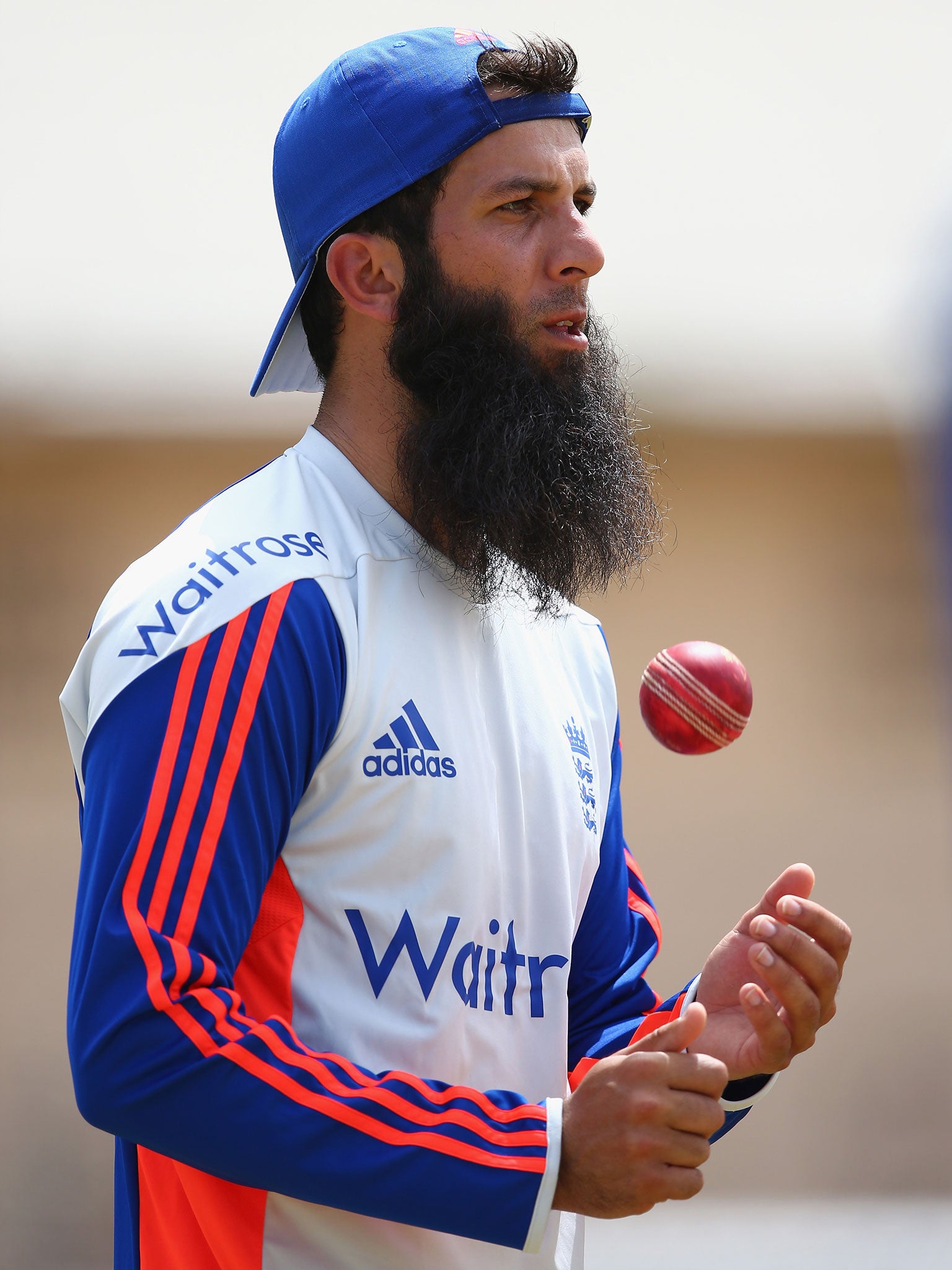Moeen Ali return gives England a difficult selection problem
He was a revelation last summer, presenting credentials as an authentic all-rounder

Your support helps us to tell the story
From reproductive rights to climate change to Big Tech, The Independent is on the ground when the story is developing. Whether it's investigating the financials of Elon Musk's pro-Trump PAC or producing our latest documentary, 'The A Word', which shines a light on the American women fighting for reproductive rights, we know how important it is to parse out the facts from the messaging.
At such a critical moment in US history, we need reporters on the ground. Your donation allows us to keep sending journalists to speak to both sides of the story.
The Independent is trusted by Americans across the entire political spectrum. And unlike many other quality news outlets, we choose not to lock Americans out of our reporting and analysis with paywalls. We believe quality journalism should be available to everyone, paid for by those who can afford it.
Your support makes all the difference.Selectors often bluster about the best part of their job. They like to say that they enjoy having too many players to pick from or trying to choose the first among equals.
They can usually say this because they do not have to do it. They simply select what they have. But on Tuesday, in one of the biggest selection conundrums of recent years, England must solve how to include Moeen Ali in their side for the Second Test.
It is obvious that Moeen, who rejoined the squad here on Sunday, should play. What is much less clear is whom he should replace and where he should bat.
Moeen was a revelation last summer, presenting credentials as an authentic all-rounder. If he was out casually too often he also fought a gallant rearguard action which brought him his maiden Test hundred and almost denied Sri Lanka victory at Headingley.
As an off-spin bowler, who had been little more than a second string in many of his years with Worcestershire, he was astonishingly successful. By the simple ruse of increasing his pace, he took 19 wickets against India.
His batting position so far has been number six. But in his absence after injuring a side towards the end of England’s ill-fated World Cup venture, Ben Stokes took that berth in the First Test in Antigua and was mightily impressive with innings of 79 and 35.
Stokes, rather unfairly, played only one Test match last season after being one of the few successes on the preceding Ashes tour. He is a cricketer in the grand manner. He bats and bowls with a zest for life.
This being so the selectors have naturally tended to distrust him. Had Moeen and Chris Woakes not both been injured, Stokes might not have been on this tour. He has once again staked a bold claim.
England will be tempted to omit James Tredwell, who bowled well enough in the First Test but could only take one wicket in 40 second innings overs. It would be harsh but equally Tredwell probably knows where he stands.
However, that would still leave the problem of the batting order. It may be that the selectors will ask Moeen to return to six because he did well enough there last summer. But Stokes had done well there before. Both are left-handed both average 30.
It will leave England with enormous batting depth, excluding the frailty of the openers. Asking Moeen to open the batting, which he does in one-day cricket for England, is unthinkable. He has never done it in a first-class match.
Ian Bell, England’s vice-captain, said: “Since he’s come in his cricket has been brilliant. But we’ll see. With this series we need to get 20 wickets. He is a quality batter and a quality bowler so we will have to fit him in somewhere.”
Stokes would be rightly miffed to move down the order again. But England may opt to move him to seven, with Jos Buttler going to eight.
This makes for an exceptional middle order which renders superfluous all chit-chat about Kevin Pietersen’s comeback. The numbers three, four and five – where Pietersen would bat – have been outstanding since his omission, scoring nine centuries between them.
Dropping any of them no matter how many runs Pietersen scores for Surrey would make no sense. But it would be the kind of problem selectors promise they like to have.
The other more immediate option is to include either Liam Plunkett or Mark Wood because they have extra pace. England’s attack tried their socks off in Antigua with enigma variations not seen since Elgar but it still looked a little homogeneous. Speed still counts.
Join our commenting forum
Join thought-provoking conversations, follow other Independent readers and see their replies
Comments